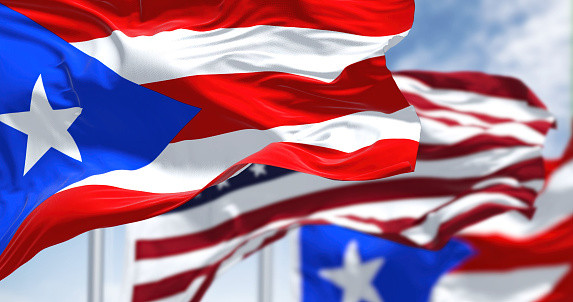
The League of United Latin American Citizens (LULAC), one of the oldest and most respected Latino civil rights organizations in the United States, is currently facing a critical crossroads that could significantly impact its future.
The organization has become embroiled in a complex legal dispute stemming from a longstanding debate regarding Puerto Rico's potential statehood.
This dispute has resulted in internal divisions and infighting among LULAC's members and leadership.
Some individuals have accused the organization's president, Domingo Garcia, of exacerbating the very discrimination that LULAC was originally founded to combat.
Several current and former members have alleged that Garcia, a Dallas-based lawyer who has been at the helm of LULAC since 2018, is attempting to marginalize Puerto Rican members following his close call in losing his position to a Puerto Rican candidate in the previous year's election.
According to the sources, it has been alleged that LULAC has suspended Puerto Rican members and unjustifiably terminated some of its prominent leaders of Puerto Rican descent.
Additionally, there are reports that two proposed amendments to the organization's constitution are being considered.
Garcia, the group's president, who is also a Mexican American, rejected the claims of discrimination.
"No such thing," Garcia responded in an interview when asked about claims that he was trying to limit the power of Puerto Rican members.
He said the issue was that the organization had not been able to confirm whether the group's councils in the territory had been funded by a political party, which could jeopardize its status as a nonprofit.
"We have had Puerto Rican councils for 30 years, it has never been a problem," he said. "This is only an issue of where the funding comes from."
LULAC has played a crucial role in mobilizing Latino voters, particularly in support of Democratic politics. Given that the majority of Latinos have historically leaned towards the Democratic Party, LULAC has become influential in driving voter turnout among this demographic.
As the Latino population has rapidly grown and diversified, Latinos have emerged as significant swing voters, which positions LULAC and other major Latino advocacy organizations to play a pivotal role in the upcoming 2024 presidential election.
The Latino voting bloc is one of the fastest-growing and ethnically diverse groups in the United States. In the 2022 election alone, an estimated 34.5 million Hispanic Americans were eligible to vote, highlighting their increasing influence in shaping the country's political landscape.
Mexicans and Mexican Americans have historically constituted the largest Latino subgroups in the United States, making up nearly 60 percent of the Latino population.
This accounts for approximately 37.2 million people, according to the Pew Research Center. In comparison, the number of individuals of Puerto Rican origin is roughly four times smaller than that.
The tensions within LULAC began to escalate last year during the organization's 2022 conference in Puerto Rico.
This gathering brought together hundreds of LULAC members. However, the event was abruptly interrupted on the eve of the group's elections, which included a contest between Domingo Garcia and Juan Carlos Lizardi.
Lizardi is the son of Elsie Valdés, a longstanding board member and advocate for Puerto Rican statehood, New York Times reported.
Following a lawsuit filed by five leaders against LULAC's board members in Dallas County, a Texas judge issued an order for the organization to halt its proceedings.
The plaintiffs argued that the New Progressive Party in Puerto Rico had collaborated with LULAC insiders, including Elsie Valdés, to influence the outcome of the election. Subsequently, around 900 members still gathered in Puerto Rico despite the conference being suspended.
They conducted a symbolic voice vote in support of Juan Carlos Lizardi.
Bernardo Eureste, the individual responsible for drafting the amendments seeking to exclude Puerto Rican residents from LULAC membership, stated that the proposal aimed to clarify existing provisions in the organization's constitution.
When asked if the amendments went against the group's spirit of unity, as some members claimed, he responded: "Were you sent to me by the Puerto Ricans? Or the people from the mainland?"
He argued that it intended to prevent what he referred to as "a takeover" of the organization.
© 2025 Latin Times. All rights reserved. Do not reproduce without permission.




